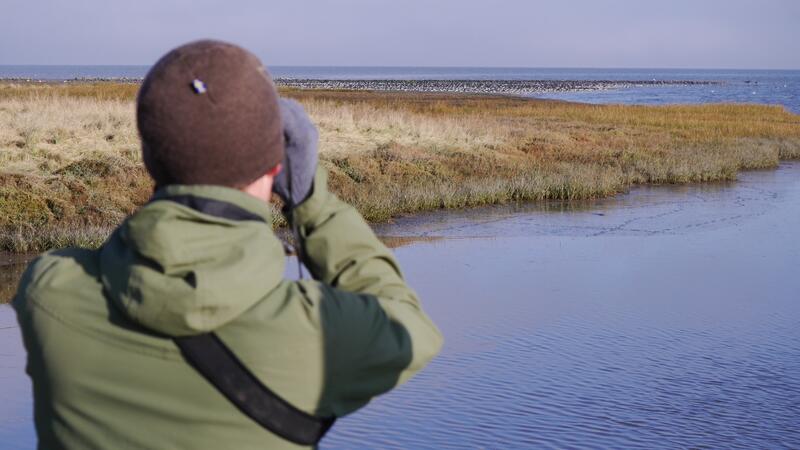Five applications awarded for research about the Wadden Sea

The Netherlands and Germany have invested 15 million euros in five research projects that will study the relation between sediment, ecology, human co-use, flood safety and effective protection and management in the Wadden Sea. The Wadden Sea is a unique system of living organisms, tides and sediments. It is a natural World Heritage Site situated at the doorstep of three industrial nations and under pressure of the triple ecological crisis. It is an area that needs adequate protection and preservation to maintain its Outstanding Universal Value.
The bilateral German-Dutch research projects will help gain a better understanding of the complex pressures on the Wadden Sea. They will also pave the road to societal impact by charting options for action and developing strategies for management measures. In addition, the programme is an investment in a new generation of Wadden experts, as well as a new bridge between countries, disciplines, institutes and types of stakeholders. In the next four years, the projects are going to combine a focus on sedimentary dynamics and saltmarsh processes with benthic ecology, terrestrial biology, landscape and legal design. They are all set to improve our current understanding of the Wadden Sea and work towards a systemic view of this wild (eco)system.
The five granted projects:
- PaRCA. Pathways for Realising Climate Adaptation in the Wadden Sea
- SedWay. Safeguarding the natural sedimentary processes in the Wadden Sea for biodiversity and people
- TRICMA². Triple crisis meets trilateral cooperation: Effects of biodiversity loss, climate change and pollution on salt marshes & pathways to their sustainable management
- SALTGARDEN. Sustainable Adaptive Landscapes through Transdisciplinary Gardening to Advance the Resilience and Dynamics of our Ecological Natural-heritage
- WADWAD. WAD was - WAD can we do? Action plan for ecosystem-based land-sea transition zones
This programme is an initiative of the Netherlands and the Federal Republic of Germany. The programme received its funds from BMUV, BMBF, LBV, IenW, EZK, Waddenfonds and the Dutch Research Agenda. The assessment was undertaken by an independent committee of 23 experts chaired by em.prof.dr. Karin Lochte, former director of the Alfred-Wegener-Institute and 2028-2022 Chair of the Wadden Sea Board.
